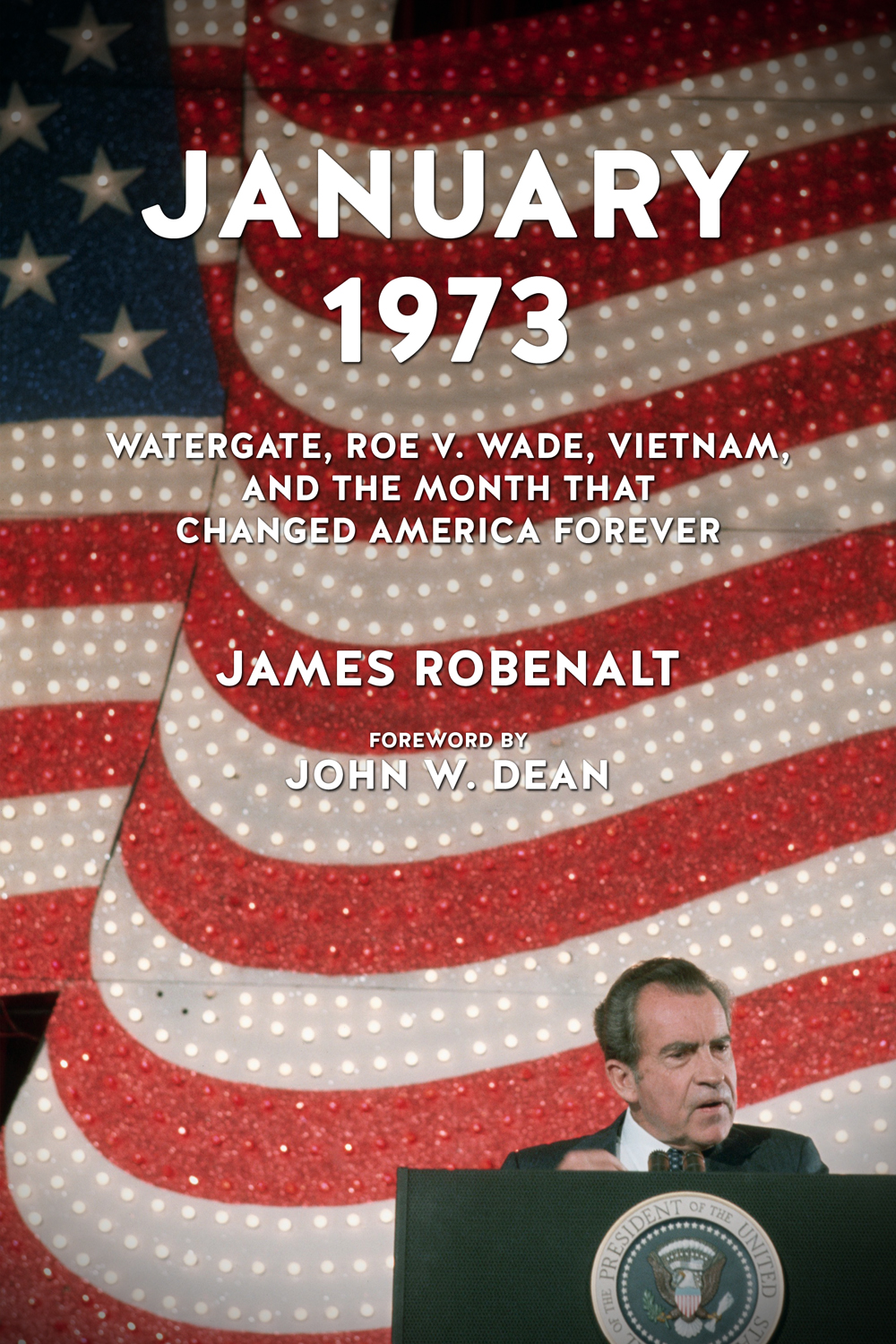

Description of the book
January 1973
Watergate, Roe v. Wade, Vietnam,
and the Month That Changed America Forever
by James Robenalt
Foreword by
John W. Dean
SCROLL DOWN
Description of the book
January 1973
Watergate, Roe v. Wade, Vietnam,
and the Month That Changed America Forever
by James Robenalt
Foreword by
John W. Dean
One indelible day--January 22, 1973: Abortion, LBJ death, Kissinger in Paris to initial Peace Accords on Vietnam. American politics would change forever.
About the Book
January 1973 saw a seismic shift in American politics. Great events followed one after another in rapid succession:
- Harry Truman died the day after Christmas 1972 and his memorial would take place in Washington on January 5, 1973;
- President Nixon and Henry Kissinger would take the final steps to end the Vietnam War for the United States;
- Judge John Sirica would preside over the Watergate burglars' trial;
- Nixon would deliver his game-changing second inaugural on January 20, 1973;
- Two days later, on January 22, 1973, the United States Supreme Court would issue Roe v. Wade; and
- Later that same day, Lyndon Johnson would die of a heart attack in Texas.
Richard Nixon's counterrevolution was at its high watermark in January 1973. Ronald Reagan would pick up what Nixon started and call it the "Reagan Revolution," but in fact history will more accurately record it as the "Nixon Counterrevolution."
With the deaths of Harry Truman and Lyndon Johnson and the end of the Vietnam War for the United States, a new era dawned. This month marked figurative and literal endpoints for the New Deal and the experiment called the Great Society.
Nixon preached a message of self-reliance in his second inaugural, purposely twisting JFK's famous "ask not" line from his inaugural: "Let each of us ask--," Nixon declared on January 20, 1973, "not just what the government can do for me, but what I can do for myself."
It was the start of the "me generation." Idealism, under its own heavy weight, gave way to cynicism and self-interest in government.
Two days after the Nixon's second inaugural, the United States Supreme Court decided Roe v. Wade, and the politics of "no compromise" found its way into our national political bloodstream.
What Nixon started--culture wars and divisiveness in government--Roe supercharged. We live today in the shadow of the Nixon Counterrevolution and Roe. Much can be explained about our current government of deadlock from the great events of this month.
January 1973 heralded immense change. Read about some of the stories in this website and scroll through the photo gallery.
Release date: May 2015
Foreword by John W. Dean, Nixon's White House Counsel
Publisher: Chicago Review Press
See the publisher's page CLICK HERE
“In January 1973, Jim Robenalt takes a snapshot in time of a whirlwind month during the Nixon era – zeroing in on five major stories that converged in January of 1973 to change the arc of American history. It’s classic Jim Robenalt: engaging, interesting while providing fresh insights and new stories from chapters of history you don’t know as well as you think you do. ”
“I confess that I was originally put off by the subtitle of the book and the grandiose claims for the importance of January 1973, and I took note of the fact as well that Robenalt is a lawyer rather than an academic historian. But he has written a truly first-rate book, based on new sources, especially recently-released tapes of conversations at the Nixon White House, and provides genuine illumination about all of the issues he discusses. There is no reader who can’t benefit from Robenalt’s research, presented in vivid and arresting (and always well-documented) prose.”
“Fresh off his re-election, Nixon was by turns erratic, devious, repellent, sympathetic, lonesome and drunk. But he is always fascinating in Robenalt’s unvarnished portrait of a flawed leader grappling with momentous events and heading, ultimately, towards ruin. This immersive microhistory offers macro conclusions about American politics.”



